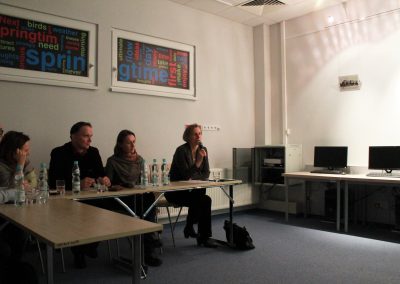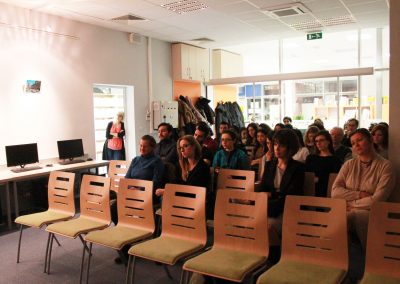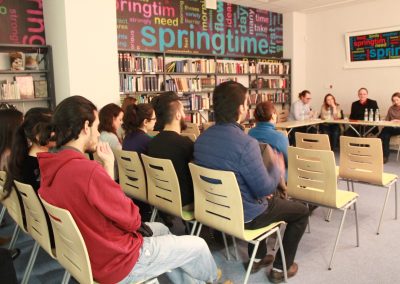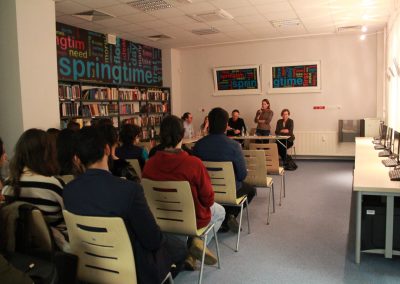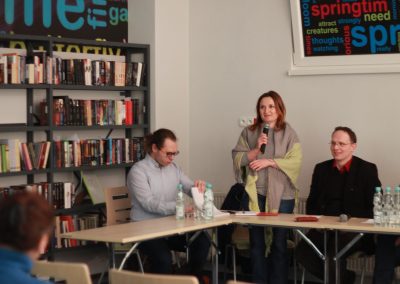On Wednesday we met in the Municipal Library Fil. 4 to participate in the debate entitled Gender ideology(ies): Man and woman – different by nature, inequal by society? We tried to find the answer to this question with our four guests: sociologists Borys Cymbrowski and Anna Czerner, philologist Katarzyna Molek-Kozakowska and biologist Elżbieta Pogoda.
We were aware that for most people the term gender is unfamiliar or even unfriendly, especially when someone is not a philologist or a social researcher, so we started with the basic questions: what gender is, how it exists in our respective fields of studies, and if there exists gender ideology. We can say that gender in general is about social consequences of being men, women or the others, because in the opinion of Elżbieta Pogoda even from a biological point of view there are more than only two sexes. And there is no evidence that one sex has an advantage over another.
In Polish media we encounter some false beliefs about the meaning of the word “gender”. But as Borys Cymbrowski mentioned it is a problem of confusion of nature with culture, because in the Polish language we have only one word (płeć) for gender and for sex. So some commentators confuse biological meaning with the cultural one. They accuse gender scholars of promoting a dangerous ideology which tries to convince people to choose their sex. As Anna Czerner said, the truth is that in the social sciences gender was a neutral category to analyse the relations between people in society, but unfortunately some institutions and politicians took one of the least popular topics in gender studies and used it as a basis to create and apply gender ideology as a political tool.
After that we focused mostly on language aspects within gender issues. Katarzyna Molek-Kozakowska indicated that for her it was easier to introduce herself in English than in Polish, because in Polish most names of academic professions have only a masculine gender, or even if it has a female gender, masculine forms sound more serious and more prestigious. But language is not a constant phenomenon – it is changing all the time. Twenty years ago we considered some female forms of words as strange, but today we take them for granted. We concluded that it is important to include more women-related forms to language, and it is one of the main catalysts of social changes in the public sphere.
We are really glad we could discuss it with you and with the citizens of Opole. We would like to thank you all for your presence and participation, and we hope to see you soon during another discussion. The aim of the whole debate was to clarify a little the problem of gender, but two hours is a short time when you are discussing such an important and complicated topic – so we treat this meeting only as a start. The debate is still open.

Unia Europejska ogłasza konkurs na stypendia w ramach programu “EU4Belarus: Solidarność z mieszkańcami Białorusi”
Unia Europejska w ramach programu „EU4Belarus: Solidarność z mieszkańcami Białorusi” ogłasza konkurs na stypendia EU4Belarus – SALT (Support for Advanced Learning and Training) dla białoruskich studentów, którzy już studiują na uniwersytetach Litwy, Łotwy, Czech...
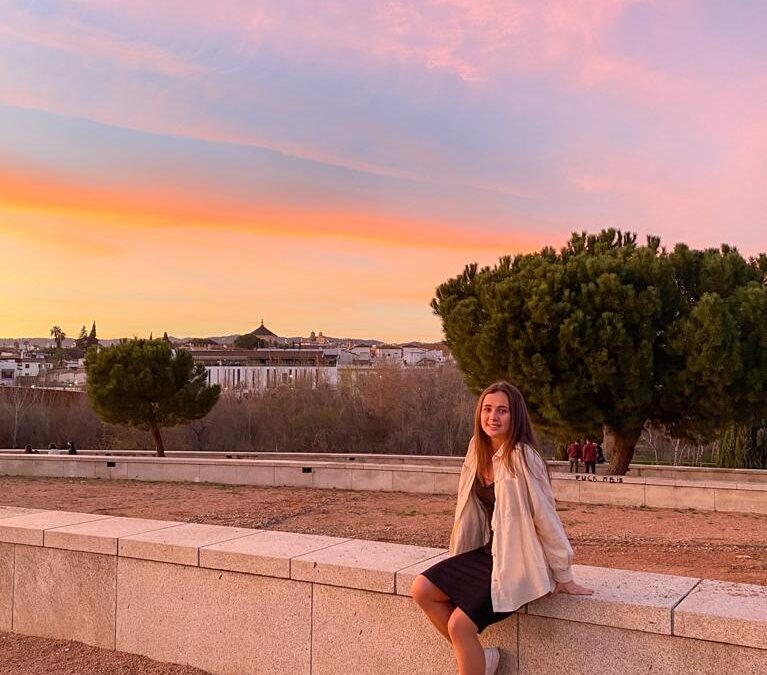
Emilia Galas o swoich doświadczeniach na Erasmusie 🙂
Wyobraź sobie miasteczko, w którym temperatura przez większą część roku nie spada poniżej 20℃. Miasteczko, które latem jest jednym z najcieplejszych miejsc w Europie, jednak pomimo to, jest tu mnóstwo zieleni. Miejsce, w którym tosty z pomidorem i szynką, churrosy z...
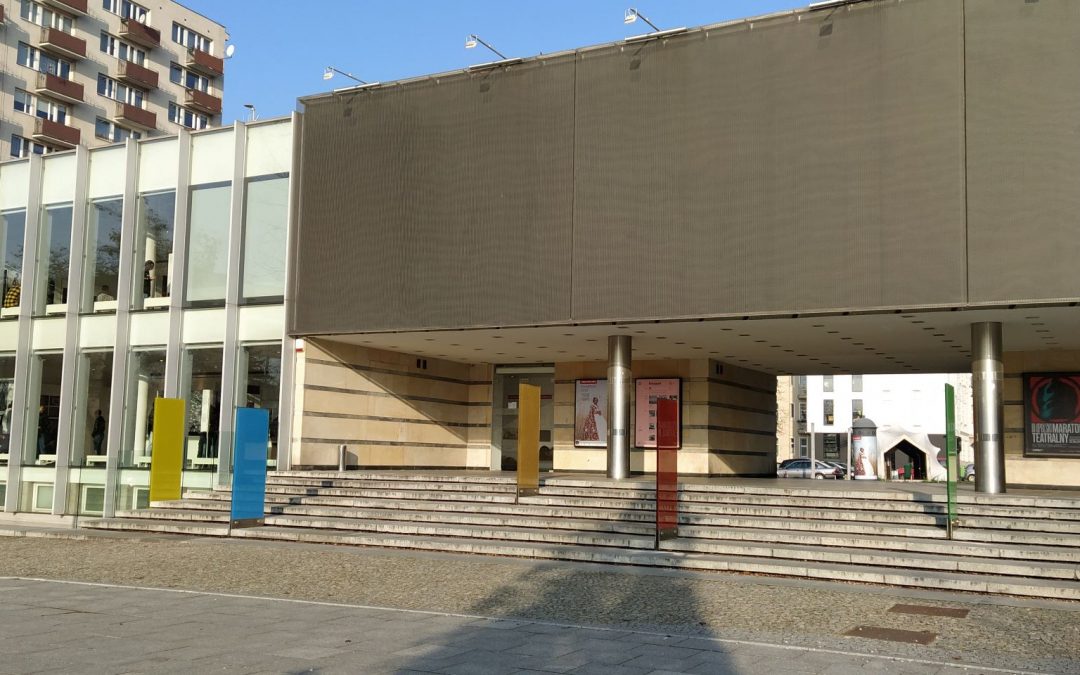
Salon wiosenny 2021
Salon wiosenny 2021 Contemporary Art Gallery in Opole invites you to the exhibition "Salon wiosenny 2021". The guided tour in English will take place on Tuesday, June 22, at 5p.m. You can get your free ticket in Erasmus+ office (Kmicic Hall). Join us in Galeria Sztuki...
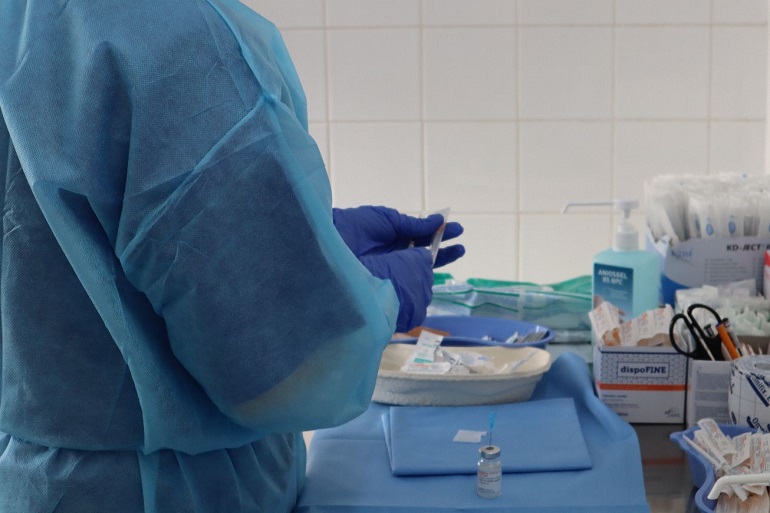
Get a vaccine! Vaccination point available for UO students on June 17 at the Student Cultural Center
Dear Students! Universal vaccination is the only way to end the COVID-19 pandemic and return to normal life. In the spirit of responsibility for our common safety and concern for the comfort of life, we encourage you to get vaccinated against coronavirus. The...
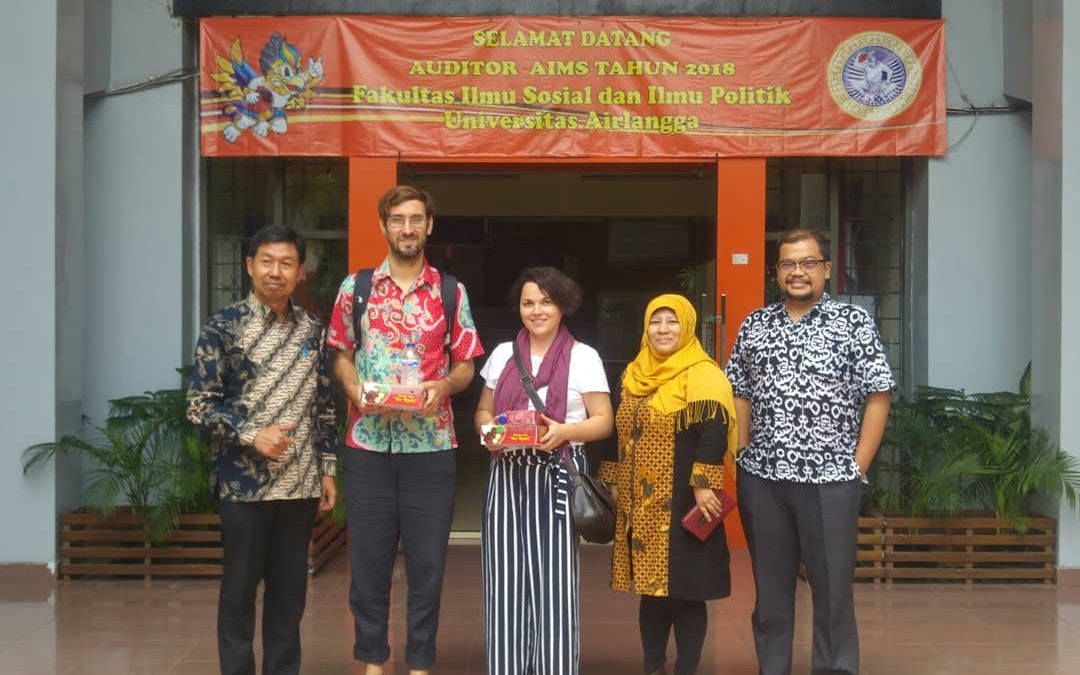
Virtual exchange programs in Indonesia
Universitas Airlangga in Indonesia would like to invite UO students to join their virtual exchange programs, AMERTA XV (Academic Mobility Exchange for Undergraduate and Master at Airlangga Batch XV) and LINGUA (Learning Indonesian Language at Universitas Airlangga)....
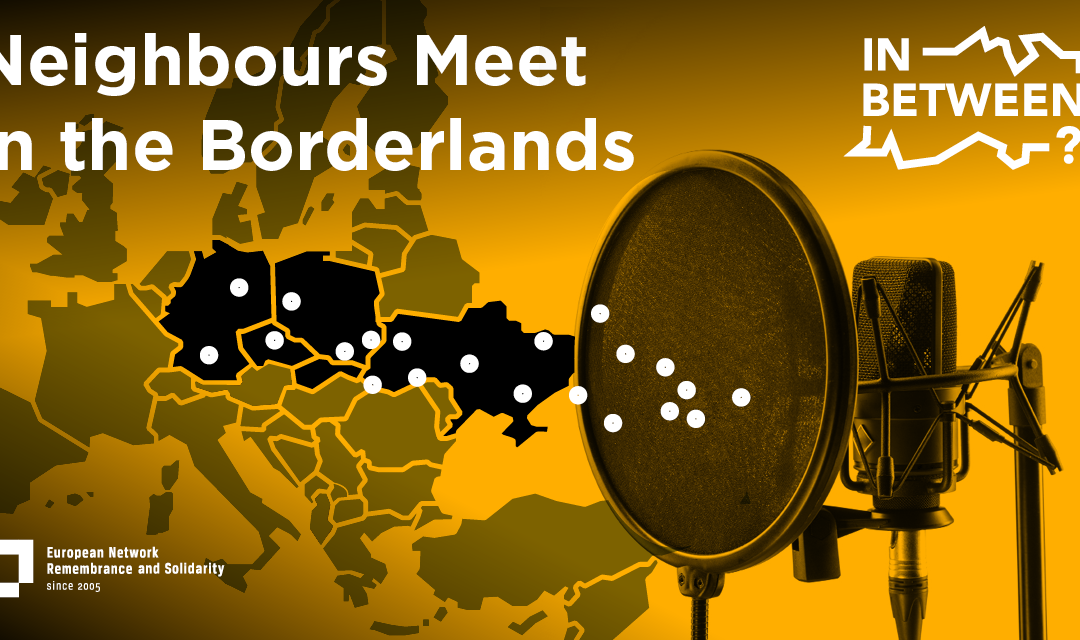
About In Between? – Neighbours Meet in the Borderlands
Dear Students! In Between? is an educational project for students interested in exploring the history of the European borderland regions. The participants are given a unique opportunity to conduct academic research using oral history methodology and learn how to...
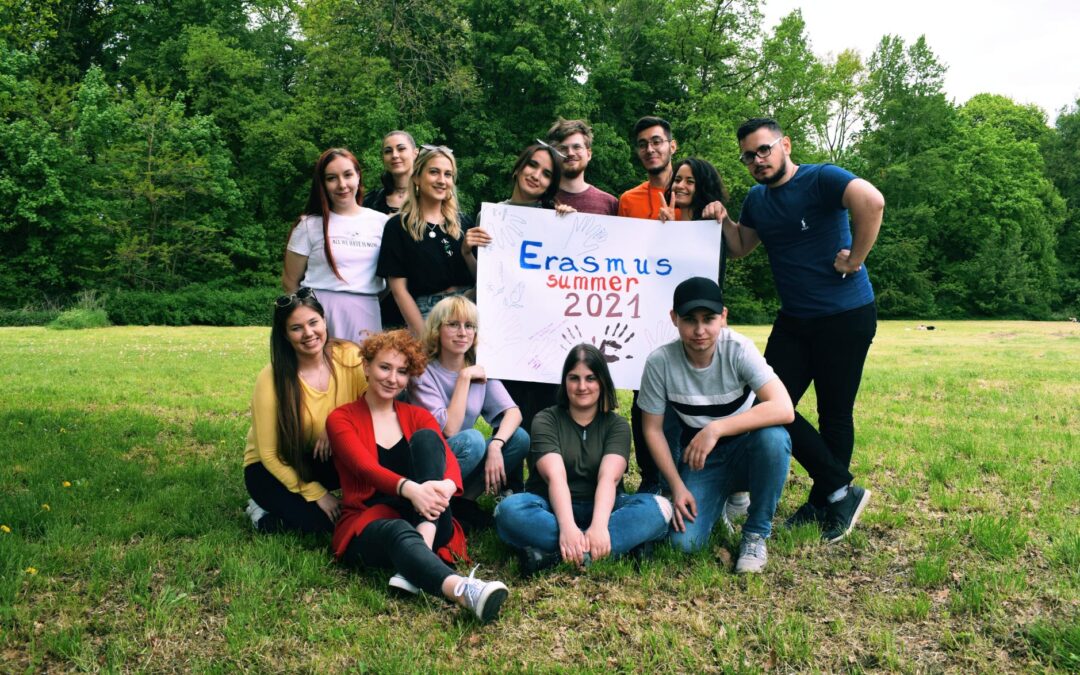
City game for Erasmus students
On the 15th of May, Poland loosened its pandemic restrictions. Therefore, our Buddy mentors and students from the Master of Liberal Arts program organized the city game for Erasmus+ students. The idea of the event was to introduce our Erasmus students to the Opole...
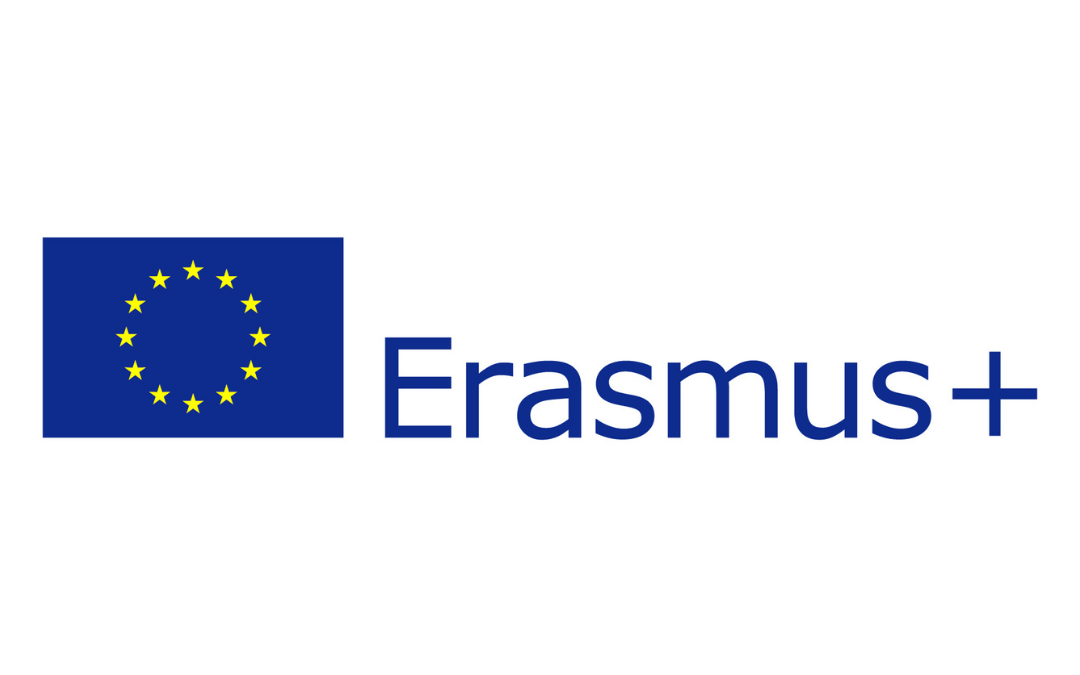
Dodatkowa rekrutacja w ramach programu ERASMUS+ na STT
Aplikować mogą pracownicy, którzy nie mieli okazji wziąć udziału w poprzedniej rekrutacji ogłoszonej w październiku 2020 r. a także osoby, które nie mają przyznanego miejsca na realizację wyjazdu w roku akademickim 2020-2021. Rekrutacja potrwa do 21 maja 2021 r. W...
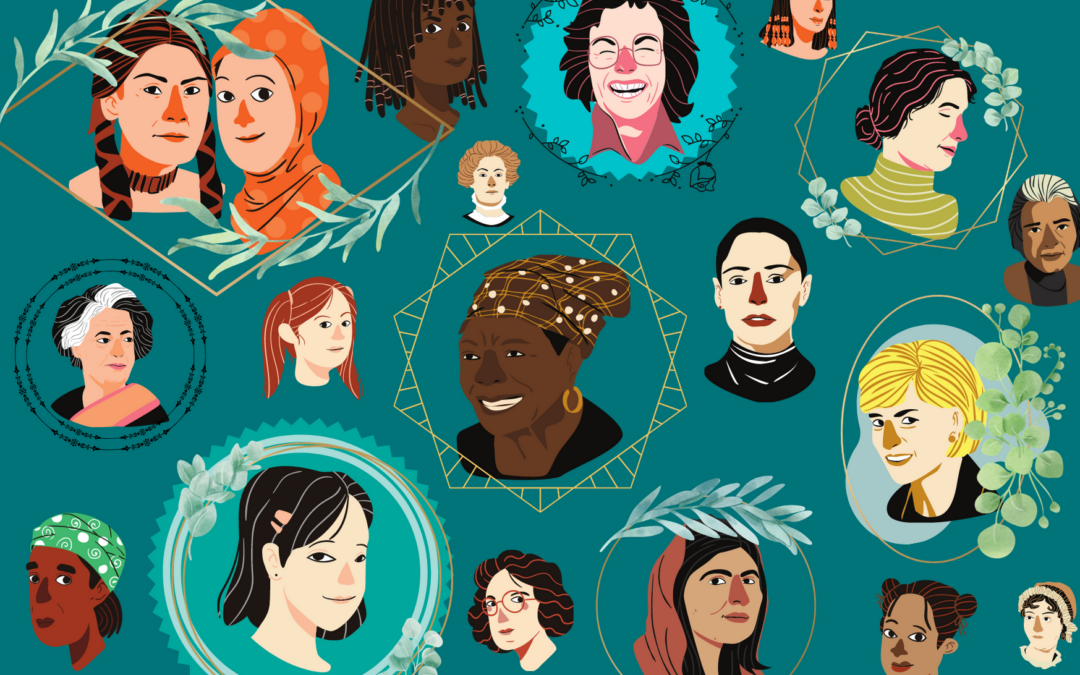
FORTHEM Diversity and Migration workshop
FORTHEM Diversity and Migration workshop invites you to a progress meeting Despite the epidemic and previously unknown administrative challenges, the Diversity and Migration lab is pursuing scientific cooperation within the FORTHEM alliance. On Monday and Tuesday,...
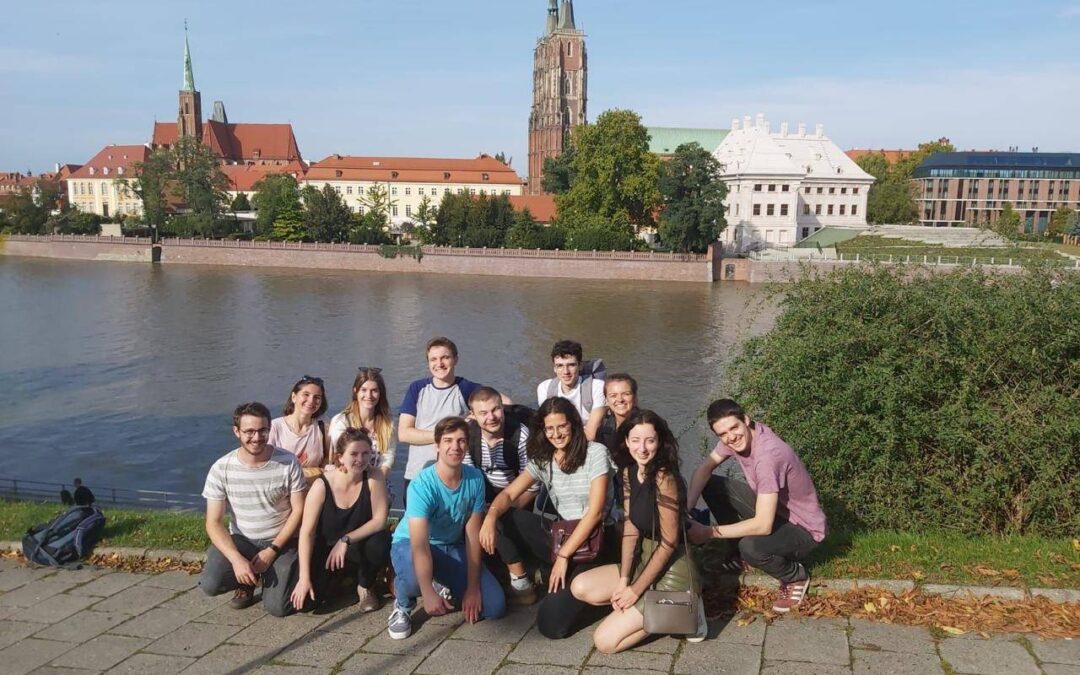
Europa Master
Group of Europa Master studentsDear Students, we want to remind you that the admission process for the Europa Master program has already begun! You still have a chance to send your applications by May 15,2021. For more details, please contact the coordinator of the...
